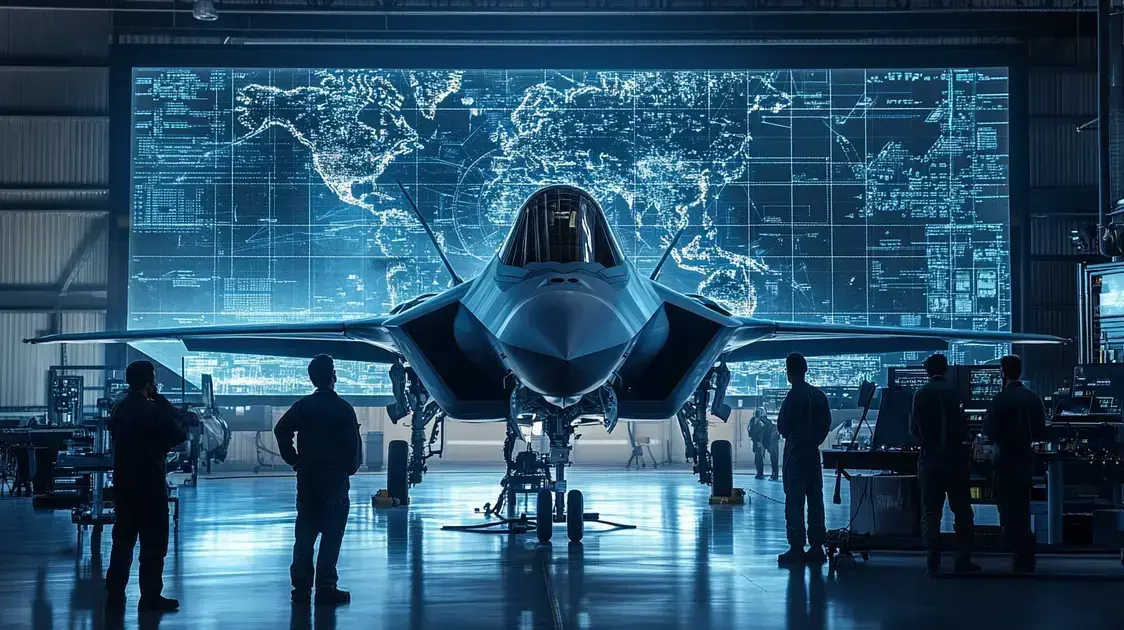The skills needed for Air Force careers encompass a unique combination of mental toughness, physical endurance, and unwavering commitment to service.
Whether it’s leadership and teamwork skills to inspire and guide others or technical expertise to handle cutting-edge technologies, each attribute is essential.
In this guide, we’ll dive deep into the core abilities that any aspiring Air Force member should develop for success.
Mental Strength and Resilience
Mental strength and resilience are foundational traits for any Air Force member to excel under pressure. Air Force personnel often face high-stress situations, demanding quick thinking and stable emotional responses.
Building mental toughness involves consistent training, exposure to challenging scenarios, and a focus on stress management techniques.
Skills needed for Air Force personnel include the ability to remain mentally strong and resilient in the face of adversity, ensuring peak performance in high-pressure environments.
Resilience is equally crucial, as it helps individuals recover from setbacks and maintain peak performance in demanding environments. Developing resilience can involve strategies such as mindfulness practices, goal setting, and learning from past experiences.
These habits strengthen determination, enabling Air Force members to remain steadfast during intense operations.
Coping with High-Stress Environments
Effective coping mechanisms are necessary for managing stress in dynamic conditions.
Techniques like controlled breathing, maintaining a positive mindset, and seeking support from peers are essential tools in the Air Force to ensure sustained mental clarity and performance under pressure.
Additionally, fostering strong peer connections can provide emotional support and enhance team morale.
The Air Force also emphasizes regular mental health evaluations and resources, ensuring that personnel have access to necessary support systems to stay mentally prepared. This proactive approach underscores the importance of maintaining resilience throughout one’s career.
Leadership and Teamwork Skills
Leadership and teamwork skills are at the core of success in the Air Force, as missions rely heavily on collaboration and effective decision-making. Leaders in the Air Force must be able to inspire confidence, motivate their teams, and guide them through challenging objectives.
This includes the ability to assess situations quickly, delegate responsibilities, and maintain a calm demeanor during critical moments.
Skills needed for Air Force personnel include strong leadership abilities, as well as the capacity to work effectively in teams, ensuring that each member plays their part in achieving mission success.
Teamwork is equally vital, as Air Force missions often demand cohesive group activity under intense conditions. Trust, communication, and mutual respect among team members are essential to achieving success.
Personnel are trained to work together seamlessly, understanding each role to ensure every aspect of an operation is executed flawlessly.
Fostering Leadership Qualities
Leadership in the Air Force goes beyond rank or title—it calls for the ability to make informed decisions and accept responsibility for outcomes.
Development programs focus on building confidence, emotional intelligence, and decision-making under pressure. These programs help create leaders capable of adapting to rapidly changing circumstances.
Effective Team Collaboration
In high-stakes environments, strong collaboration—including clear communication and synchronized efforts—minimizes risk and ensures smooth operations.
Exercises that simulate real-world scenarios build strong team dynamics and reinforce the importance of supporting one another, especially in unexpected situations.
Ultimately, the combination of leadership and teamwork skills ensures every Air Force member contributes to the success of the mission, reinforcing the collective strength of the team.
Technical Expertise and Innovation

Technical expertise and innovation play a pivotal role in the Air Force, as personnel are frequently required to operate, maintain, and troubleshoot advanced equipment and systems.
This includes handling technologies such as aircraft systems, communication devices, and advanced robotics. Ensuring proficiency in these technical areas demands continuous training and certifications, which keep team members up-to-date with evolving innovations.
The Air Force fosters innovation by encouraging creative problem-solving and the application of emerging technologies. Personnel are often tasked with developing new approaches to enhance efficiency, improve mission outcomes, and address unforeseen challenges.
This forward-thinking approach ensures that Air Force teams remain equipped to adapt to an ever-changing technological landscape.
Cutting-Edge Tools and Systems
From high-tech surveillance systems to highly sophisticated avionics, Air Force members must possess a deep understanding of both hardware and software operations.
Training programs are designed to build advanced technical knowledge while emphasizing the importance of precision and accuracy in handling tools.
Problem-Solving Through Innovation
Innovation in the Air Force requires not only understanding how existing systems work but also identifying opportunities for improvement.
Whether it’s designing solutions for logistical challenges or improving the efficiency of aircraft maintenance, creative thinking is highly valued.
Supporting innovation through collaborative brainstorming, resource utilization, and experimentation is a key practice in driving progress.
This blend of technical expertise and a mindset for innovation ensures Air Force personnel can handle sophisticated technologies and lead advancements that benefit both their team and mission success.
Physical Fitness Requirements
Physical fitness requirements are a cornerstone of Air Force readiness, ensuring that every member is prepared to meet the physical demands of their role.
Rigorous fitness standards are in place to assess endurance, strength, agility, and overall health. These standards are critical not only for individual performance but also for guaranteeing mission success.
The Air Force’s fitness assessments typically include activities such as running, push-ups, sit-ups, and tests that measure cardiovascular endurance.
These exercises evaluate the ability to handle physically strenuous environments while maintaining peak performance levels. Regular assessments ensure that members remain fit and capable throughout their careers.
Skills needed for Air Force personnel include maintaining high levels of fitness to meet the demands of the job, ensuring they are always prepared for any physical challenge. Strength and Endurance Training
Strength and Endurance Training
Building muscle strength and endurance is vital for tasks like lifting equipment, operating heavy machinery, or managing physically demanding situations in the field.
Members are encouraged to engage in resistance training, interval workouts, and consistent cardio exercises to meet these needs.
Importance of Nutrition and Recovery
A balanced diet rich in essential nutrients, combined with adequate sleep and recovery periods, supports the physical readiness of Air Force personnel. Emphasis on healthy lifestyle choices is integral to maintaining energy levels, improving focus, and reducing the risk of injuries.
Through disciplined physical training routines and a focus on overall wellness, members of the Air Force are equipped to perform at their best in both routine duties and high-pressure scenarios, ensuring they remain mission-ready at all times.
Skills needed for Air Force personnel extend beyond physical fitness to also encompass mental resilience, helping them stay sharp in every situation.
Adaptability and Decision-Making
Adaptability and decision-making are essential traits for Air Force personnel, as missions often involve rapidly changing circumstances and unexpected challenges.
Members must think critically and adjust their actions to align with shifting conditions, ensuring success even in high-pressure situations. Training focuses on developing quick judgment and flexibility to respond effectively during critical moments.
Skills needed for Air Force members include the ability to adapt to diverse environments, from combat zones to humanitarian missions. Whether facing adverse weather, equipment failures, or evolving objectives, the ability to stay composed and modify strategies is crucial.
This readiness to adapt ensures that operations continue smoothly regardless of obstacles.
Strengthening Decision-Making Skills
Decision-making in the Air Force often happens under tight time constraints where accuracy and speed are non-negotiable.
Through realistic simulations and scenario-based training, personnel learn to evaluate risks, weigh potential outcomes, and choose the best course of action even under stress.
Skills needed for Air Force personnel include the ability to make rapid, effective decisions that support mission objectives and team coordination. This prepares them to lead with confidence and achieve mission goals.
Maintaining Focus in High-Stress Situations
Training programs also emphasize the importance of staying focused and analyzing information quickly.
Techniques such as situational awareness, strategic thinking, and prioritization ensure members can distinguish between critical and non-critical tasks during chaotic moments, enabling better decisions.
The ability to adapt and make sound decisions contributes significantly to mission success, reinforcing the importance of these skills at all levels of Air Force operations.
Communication and Interpersonal Skills

Communication and interpersonal skills are essential for Air Force personnel to operate effectively within diverse teams and environments.
Clear and concise communication ensures that instructions are understood and executed correctly, whether during high-pressure missions or routine operations.
Members are trained to convey their ideas and intentions in a confident and precise manner, reducing the chances of errors.
Interpersonal skills are equally vital, as the Air Force is built on a foundation of teamwork and trust. Building strong relationships with team members, superiors, and subordinates fosters cooperation, mutual respect, and a sense of unity.
These relationships are critical for achieving mission objectives and maintaining morale.
Listening and Clarity in Communication
Active listening is a key component of effective communication. Members must be able to fully understand briefings, instructions, and feedback.
This includes maintaining eye contact, asking relevant questions, and summarizing critical points to ensure clarity. These skills are reinforced through training to optimize efficiency in fast-paced scenarios.
Handling Conflicts and Strengthening Connections
Strong interpersonal skills also help in managing conflicts that may arise within teams. The ability to resolve disagreements constructively, maintain professionalism, and find compromise ensures that team dynamics stay intact.
Additionally, empathy and adaptability allow members to connect with others, enhancing group cohesion and operational success.
By mastering communication and interpersonal abilities, Air Force personnel contribute not only to the smooth execution of tasks but also to fostering a collaborative and supportive environment.
Commitment to Core Values
Commitment to core values is a defining characteristic of Air Force personnel, ensuring that every action reflects the principles that guide their service.
The Air Force core values—integrity first, service before self, and excellence in all we do—are more than ideals; they form the foundation for decision-making, teamwork, and the overall mission.
Skills needed for Air Force personnel include a strong sense of integrity, a commitment to service before self, and the drive for excellence in all aspects of their work. Integrity drives members to act honestly and uphold high ethical standards, even in challenging situations.
This cornerstone of character fosters trust within teams and with the public, ensuring that every mission is carried out with accountability and transparency.
Service Before Self
This value emphasizes prioritizing duty over personal gain. Members are trained to think beyond their individual needs and focus on the collective mission.
From assisting teammates to responding to humanitarian crises, selflessness reinforces the strength and unity of the organization. This mindset ensures that Air Force personnel remain dependable in all circumstances.
Excellence in All We Do
Aiming for excellence requires discipline, attention to detail, and continuous improvement. Skills needed for Air Force personnel extend to maintaining aircraft, performing in the field, and ensuring the highest standards in all tasks, no matter how challenging.
Whether maintaining aircraft or performing in the field, commitment to quality and precision defines the Air Force’s operational success.
Living by these core values ensures that Air Force personnel not only meet operational demands but also exemplify integrity and dedication in service to their country.
FAQ – Frequently Asked Questions About skills needed for Air Force
What mental skills are critical for success in the Air Force?
Mental strength and resilience are essential for handling stress and recovering from setbacks during high-pressure situations.
Why are leadership and teamwork important in the Air Force?
Leadership inspires confidence and guides teams, while teamwork ensures effective collaboration and mission success.
What kind of technical expertise is required in the Air Force?
Air Force personnel need to operate advanced systems and innovate to improve mission efficiency, requiring continuous technical training.
How important is physical fitness for Air Force members?
Physical fitness is essential to ensure members meet strength, endurance, and agility standards for demanding tasks and environments.
How does adaptability affect performance in the Air Force?
Adaptability allows personnel to adjust quickly to changing circumstances, ensuring effective decision-making in dynamic environments.
Why are communication skills vital for Air Force personnel?
Clear communication ensures accurate execution of plans, while interpersonal skills build trust and strengthen team dynamics.
